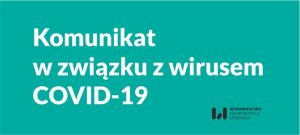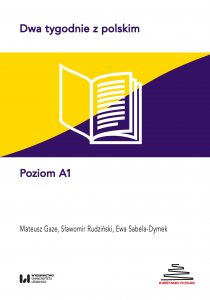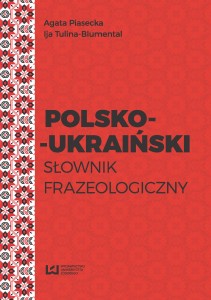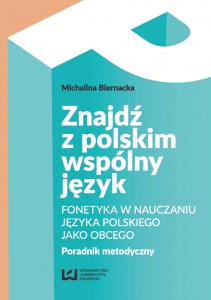Zagadnienia Rodzajów Literackich. Formy kultury i teorii | CALL FOR PAPERS 2024 [PL/ENG]
Opublikowano: 5 kwietnia 2024
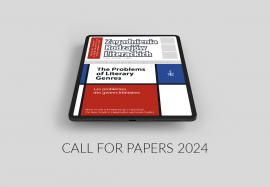
CALL FOR PAPERS 2024
„Zagadnienia Rodzajów Literackich. Formy kultury i teorii” ogłaszają nabór tekstów na rok 2024. Czasopismo ukazuje się jako półrocznik, od 2023 roku w odświeżonej formule.
W związku z dużym zainteresowaniem numerami „wolnymi”, bez tematu głównego, Redakcja otworzyła Dział Stały, co oznacza, że w obu numerach w roku będą publikowane teksty niezwiązane z tematami tomów, prezentujące aktualne wyniki badań z interesujących nas dyscyplin. Do Działu Stałego zgłoszenia procedujemy w trybie ciągłym.
Dział Stały i Tematy numerów obejmują następujące sekcje:
- Rozprawy
- Eseje
- Recenzje naukowe
- Materiały do Słownika rodzajów literackich (hasła)
- Miscellanea (np. sprawozdania konferencyjne, wywiady, panele dyskusyjne, nekrologi) Szczegółowe informacje dot. typów tekstów znajdują się na stronie.
Zgłoszenia prosimy przesyłać wyłącznie na adres Redakcji: zrl@uni.lodz.pl
TEMAT NUMERU 1/2024
Kultura gender i queer w literaturze polskiej i na jej obrzeżach
Zapraszamy do zgłaszania tekstów do kolejnego numeru „ZRL” poświęconego wszelkim polskim kontekstom takich kategorii, jak gender i queer. Co oznacza, że interesują nas zarówno ujęcia metodologiczne: namysł nad tymi pojęciami jako narzędziami analityczno-metodologicznymi, jak i teksty poświęcone konkretnym polskim dziełom literackim dającym się wpisać w ramy szeroko pojętej nieheteronormatywność i operujące rozmaitymi strategiami reprezentacji płci kulturowej.
- Spodziewamy się również artykułów analitycznych „queerujących” różne dzieła w polskiej literaturze, poddających je reinterpretacji pod tym właśnie, genderowo-queerowym kątem.
- Oczekujemy też na teksty poświęcone biografiom polskich twórców tematyzujących (lub nie) ten aspekt rzeczywistości kulturowej, a których drogi życiowe determinowane były (lub są) wykraczaniem poza normy wyznaczane przez porządek genderowy.
- Ponadto spodziewamy się tekstów eksplorujących kwestie związane z konwencjonalnymi uwarunkowaniami kategorii genderowych: na przykład estetykę kampu.
- Wreszcie, interesują nas też rozprawy poświęcone kontekstom gatunkowym polskich opowieści o przekraczaniu, dostrzeganiu płynności lub przeciwnie, opresyjności granic porządku wyznaczanego przez płeć kulturową.
Redaktorka tematu: dr hab. Agnieszka Izdebska (Uniwersytet Łódzki)
Termin nadsyłania tekstów: 29 lutego 2024 r.
TEMAT NUMERU 2/2024
Gender non-fiction
„Więc nie ważcie się redukować mojej płci do konstruktu, dragu lub performansu, ponieważ moja płeć jest dziełem non-fiction” („So don’t dare dismiss my gender as a construct, drag or a performance, because my gender is a work of non-fiction”) — brzmi najbardziej prowokacyjne zdanie z opublikowanego dekadę temu eseju transpłciowej aktywistki, pisarki, biolożki i muzyczki Julii Serano (2013). Serano jako osoba transpłciowa i czynna w polu literatury faktu miała, jak nikt inny, prawo do tak mocnej asercji. Metafora, bo z nią w istocie mamy tu do czynienia, według klasycznej definicji Arystotelesa, to „przeniesienie nazwy z jakiejś rzeczy na inną na zasadzie analogii”. Serano zbudowała analogię gender–non-fiction, płeć–literatura faktu. I tak jak „non-fiction” jest zaprzeczeniem „fiction”, tak doświadczenie płci Serano zaprzecza koncepcji performatywności płci takiej, jaką przedstawiła Judith Butler w Uwikłanych w płeć (Gender Trouble).
Propozycja numeru tematycznego „Zagadnień Rodzajów Literackich” bierze się z naszego przekonania, że „gender” i „non-fiction” nieczęsto spotykają się w polskich badaniach literaturoznawczych, które, być może trochę zanadto uwiedzione konceptem „performatywności”, koncentrują się na genderowych interpretacjach literatury fikcjonalnej lub intymistyki, natomiast obszar literatury faktu traktują nieco po macoszemu, ignorując chociażby jego czytelniczą popularność.
Poniżej wskazujemy kilka możliwych i z naszego punktu widzenia interesujących zagadnień:
- męskie vs. kobiece strategie pisarskie w literaturze faktu;
- male/female gaze w literaturze niefikcjonalnej;
- konstrukcje płci podmiotu/bohaterów/bohaterek/czytelnika/czytelniczki w literaturze faktu i ich tekstowe konsekwencje;
- płciowa asymetria prestiżu w polu literackim (nagrody, wyróżnienia, nakłady, etc.);
- płciowa asymetria dostępu do faktów, informacji, technologii, osób, źródeł w pracy pisarskiej/reporterskiej;
- płeć odbiorcy/odbiorczyni literatury faktu;
- płeć „polskiej szkoły reportażu”;
- przemiany pola wiedzy o płci i seksualności a ich popularno-naukowe reprezentacje;
- nieustraszeni reporterzy vs. czułe reportażystki – konstruowanie wizerunków;
- non-fiction a wychodzenie poza binarność płci i heteronormatywność;
- ciało, płeć i seksualność a cenzura w literaturze niefikcjonalnej;
- przemiany intymności w literaturze niefikcjonalnej;
- wpływ nowych mediów i transmedialności na konceptualizację gender w literaturze niefikcjonalnej;
- performowanie literatury a jej niefikcjonalny potencjał.
Redaktorzy tematu:
dr Katarzyna Lisowska (Uniwersytet Wrocławski)
dr hab. Wojciech Śmieja (Uniwersytet Śląski w Katowicach)
Termin nadsyłania tekstów: 31 maja 2024 r.
CALL FOR PAPERS 2024
“Zagadnienia Rodzajów Literackich. Formy kultury i teorii”/ “The Problems of Literary Genres. Forms of Culture and Theory” announces a call for papers for 2024. The journal is published as a biannual, starting in 2023 in a refreshed format.
Due to the great interest in “free” issues without a main topic, the Editorial Board has opened a Main Section, which means that both issues per year will publish texts unrelated to the topics of the volumes, presenting current research results from disciplines of interest. We process submissions to the Main Section on a rolling basis.
Main Section and Issue Theme include the following sections:
- Articles
- Essays
- Scientific Reviews
- Materials to The Companion of the Literary Genres (entries)
- Miscellanea (discussion panels, conference reports, responses to reviews and polemical texts, interviews…)
Detailed information on text types can be found on the site.
Please send submissions only to the Editor’s e-mail address: zrl@uni.lodz.pl
ISSUE THEME 1/2024
Gender and queer culture in and on the fringes of Polish literature
We invite everyone to submit texts for the next volume of ZRL, devoted to all Polish contexts of categories such as gender and queer. This means that we are interested both in methodological approaches: the reflection on these concepts as analytical and methodological tools, as well as in texts devoted to specific Polish literary works which can be inscribed within the framework of a broadly understood non-heteronormativity and which employ various strategies of gender representation.
- We also expect analytical articles “queering” various works of Polish literature, reinterpreting them from this gender-queer angle.
- We also expect texts devoted to the biographies of Polish authors who discuss (or not) this aspect of cultural reality and whose life paths were (or are) determined by transgressing the norms set by the gender order.
- Moreover, we also expect texts exploring issues related to the conventional conditions of gender categories: for example, the aesthetics of camp.
- Finally, we are also interested in dissertations devoted to the genre contexts of Polish stories about transgressing, perceiving the fluidity or, on the contrary, the oppressiveness of the limits of the gendered order.
Theme Editor: Agnieszka Izdebska (University of Lodz)
Submission deadline: 2024, February 29
ISSUE THEME 2/2024
Gender non-fiction
“So don’t dare dismiss my gender as a construct, drag or a performance, because my gender is a work of non-fiction” — is the most provocative sentence from an essay published a decade ago by transgender activist, writer, biologist and musician Julia Serano (2013). Serano, as a transgender person and a non-fiction author, was entitled, like no one else, to such a strong assertion. A metaphor, for that is indeed what we are dealing with here, according to Aristotle’s classical definition, is ‘the transfer of a name from one thing to another by analogy’. Serano has constructed an analogy: gender – non-fiction. And just as ‘non-fiction’ is a negation of ‘fiction’, Serano’s experience of gender contradicts the concept of the gender’s performativity as presented by Judith Butler in Gender Trouble (1990).
Our proposal for a thematic issue of “Zagadnienia Rodzajów Literackich” (“The Problems of Literary Genres”) stems from our conviction that ‘gender’ and ‘non-fiction’ do not often meet in Polish literary studies, which are, perhaps, “seduced” by the concept of ‘performativity’ and focus on gendered interpretations of mainly fictional and personal-document literature, while treating the field of non-fiction somewhat neglectfully, ignoring, for example, its popularity among reading community.
Below we indicate some possible and, from our point of view, interesting issues related to the main topic:
- male vs. female writing strategies in non-fiction;
- male/female gaze in non-fiction;
- gender constructions of the subject/hero(s)/reader(s) in non-fiction and their textual consequences;
- gendered asymmetries of prestige in the literary field (awards, prizes, circulation, etc.);
- gendered asymmetry of access to facts, information, technology, people, sources in writing/reporting work;
- gender of the non-fiction viewer/woman;
- gender of the “Polish school of reportage”;
- transformations of the field of knowledge on gender and sexuality and their popular scientific representations;
- “fearless” reporters vs. “sensitive” female reporters — constructing authorial images;
- “feminine” or “masculine” non-fiction?
- non-fiction and moving beyond gender binarity and heteronormativity;
- the body, gender, sexuality and censorship in non-fiction literature;
- transformations of intimacy in non-fiction literature;
- the impact of new media and transmediality on the conceptualisation of gender in non-fictional literature;
- the performance of literature and its non-fictional potential.
Theme Editors:
Katarzyna Lisowska (University of Wrocław)
Wojciech Śmieja (University of Silesia in Katowice)
Submission deadline: 2024, 31 May
Komentarze
Ten post dostępny jest także w języku: angielski


